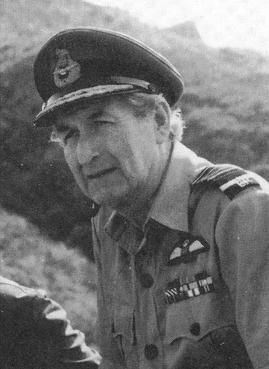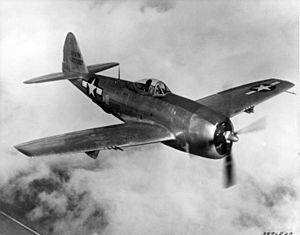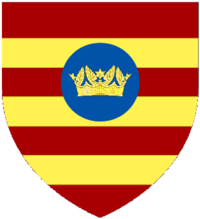Neil Cameron, Baron Cameron of Balhousie facts for kids
Quick facts for kids
The Lord Cameron of Balhousie
|
|
|---|---|

Marshal of the Royal Air Force The Lord Cameron of Balhousie
|
|
| Born | 8 July 1920 Perth, Scotland |
| Died | 29 January 1985 (aged 64) London, England |
| Allegiance | United Kingdom |
| Service/ |
Royal Air Force |
| Years of service | 1939–79 |
| Rank | Marshal of the Royal Air Force |
| Commands held | Chief of the Defence Staff Chief of the Air Staff No. 46 Group RAF Abingdon No. 258 Squadron |
| Battles/wars | Second World War |
| Awards | Knight of the Order of the Thistle Knight Grand Cross of the Order of the Bath Commander of the Order of the British Empire Distinguished Service Order Distinguished Flying Cross Mentioned in Despatches |
Marshal of the Royal Air Force Neil Cameron, Baron Cameron of Balhousie (8 July 1920 – 29 January 1985) was a very important officer in the Royal Air Force (RAF). He was a brave fighter pilot during the Second World War. He took part in famous battles like the Battle of Britain and the Battle of El Alamein.
Later in his career, he became the Chief of the Air Staff. This meant he was the top officer in the RAF. He also became the Chief of the Defence Staff, leading all of Britain's armed forces. He helped make sure service members were paid fairly and talked about the air threats from the Soviet Union.
Contents
Early Life and Joining the RAF
Neil Cameron was born in Perth, Scotland on 8 July 1920. His father passed away when Neil was very young. He was raised by his mother and grandfather.
In 1937, he started working at a bank. But soon, he decided to join the Royal Air Force Volunteer Reserve in May 1939. This was just before the start of the Second World War. He began his training to become a pilot.
A Brave Fighter Pilot
Fighting in World War II
By October 1940, Neil Cameron was a sergeant pilot. He flew Hurricanes with No. 1 Squadron. Soon after, he joined No. 17 Squadron and took part in the final stages of the Battle of Britain. This was a huge air battle where the RAF defended Britain from German attacks.
In July 1941, he joined No. 134 Squadron in Russia. He even had to take off from a Royal Navy aircraft carrier without any practice! He was promoted to pilot officer and then flying officer.
Battles in North Africa and Burma
In August 1942, Neil Cameron joined No. 213 Squadron in North Africa. This squadron was part of the Desert Air Force. He was promoted to squadron leader in March 1943.
He fought in important battles in North Africa:
- The Battle of Alam el Halfa in September 1942.
- The First Battle of El Alamein in July 1942.
- The Second Battle of El Alamein in October 1942.
These battles were very important for the Allies in North Africa.
After North Africa, he became the leader of No. 258 Squadron in February 1944. This squadron was fighting in Burma (now Myanmar). For his bravery, he received the Distinguished Flying Cross and the Distinguished Service Order. These are very high awards for military bravery.

Post-War RAF Career
After the war, Neil Cameron continued his career in the Royal Air Force. He became an instructor and worked in different staff roles. He attended important military colleges like the RAF Staff College.
Rising Through the Ranks
He steadily moved up the ranks:
- In 1950, he became a squadron leader.
- In 1956, he was promoted to wing commander.
- In 1960, he became a group captain and led RAF Abingdon, an RAF base.
- In 1964, he became an air commodore.
- In 1968, he reached the rank of air vice marshal.
He was also recognized for his service and was appointed Commander of the Order of the British Empire.
Top Leadership Roles
By 1972, Neil Cameron was Deputy Commander of RAF Germany. In 1974, he became an air marshal. He was also made a Knight Commander of the Order of the Bath, which is a high honor.
In 1975, he became an air chief marshal. Then, in 1976, he was appointed Air Aide-de-Camp to the Queen.
Chief of the Air Staff
On 7 August 1976, Neil Cameron became the Chief of the Air Staff. This made him the professional head of the Royal Air Force. In this role, he advised the British government on important matters. For example, he helped strengthen the British forces in Belize. At that time, Belize was facing threats from Guatemala.
Chief of the Defence Staff
On 31 July 1977, he was promoted to the highest rank in the RAF, Marshal of the Royal Air Force. Shortly after, on 31 August 1977, he became the Chief of the Defence Staff. This meant he was the top military advisor to the British government and led all of Britain's armed forces.
In this very important role, he:
- Helped make sure military personnel received fair pay, especially those who helped during a firemen's strike.
- Visited the People's Republic of China.
- Gave many talks about the air threat from the Soviet Union.
He retired from the RAF in August 1979.
Life After the Military
After retiring from the RAF, Neil Cameron became the Principal of King's College London, a famous university. He was also given an honorary law degree.
In 1983, he was made a life peer, which meant he became Baron Cameron of Balhousie. This allowed him to sit in the House of Lords. He was also appointed a Knight of the Order of the Thistle, a very special Scottish honor. He also became the Chairman of the trustees for the RAF Museum.
Neil Cameron passed away on 29 January 1985, at the age of 64.
Personal Life
In 1947, Neil Cameron married Patricia Louise Asprey. They had a son and a daughter. He enjoyed playing rugby in his free time.
Arms
|
| Military offices | ||
|---|---|---|
| Preceded by Sir Denis Crowley-Milling |
Air Officer Commanding No. 46 Group 1973–1974 |
Succeeded by Norman Hoad |
| Preceded by Sir Harold Martin |
Air Member for Personnel 1974–1976 |
Succeeded by Sir John Aiken |
| Preceded by Sir Andrew Humphrey |
Chief of the Air Staff 1976–1977 |
Succeeded by Sir Michael Beetham |
| Preceded by Sir Edward Ashmore |
Chief of the Defence Staff 1977–1979 |
Succeeded by Sir Terence Lewin |
| Academic offices | ||
| Preceded by Richard Way |
Principal of King's College London 1980–1985 |
Succeeded by Lord Sutherland of Houndwood |
 | Chris Smalls |
 | Fred Hampton |
 | Ralph Abernathy |



